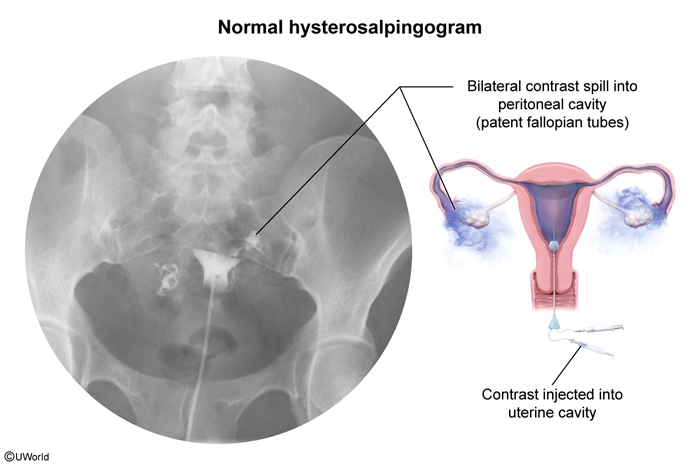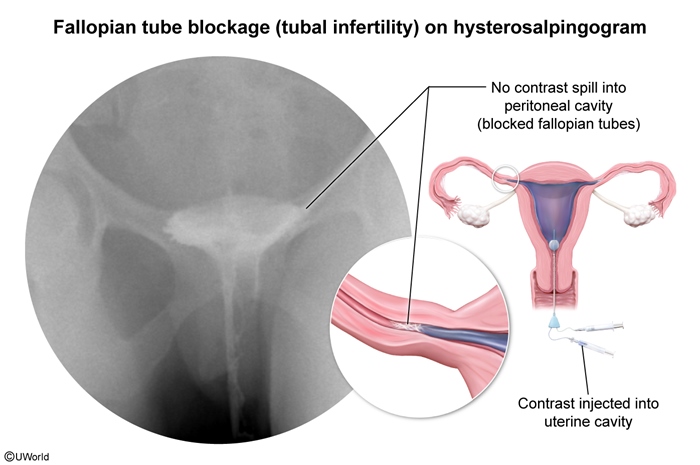Infertility
Article Sections
Introduction
Infertility is the inability to conceive or the need for medical intervention to achieve pregnancy. It is defined as the failure to conceive after 12 months of regular, unprotected intercourse in women age <35 or 6 months in women age ≥35. Infertility may be attributed to male or female factors or an unknown (ie, idiopathic/unexplained) cause, and it requires evaluation of both partners.
Male infertility evaluation
In any couple with infertility, the first step is evaluation of male factor infertility because testing is less invasive.
The history in these patients includes a review of prior illnesses (eg, mumps), trauma, surgeries, and sexual history, as well as medication, supplement, or substance (eg, androgens) use. Physical examination evaluates for signs of systemic illness (hypothyroidism, hypogonadism), and a detailed examination of the genitals to assess for possible anatomic causes of infertility (eg, congenital absence of vas deferens, varicocele).
Continue Learning with UWorld
Get the full Infertility article plus rich visuals, real-world cases, and in-depth insights from medical experts, all available through the UWorld Medical Library.
Unlock Full AccessFigures
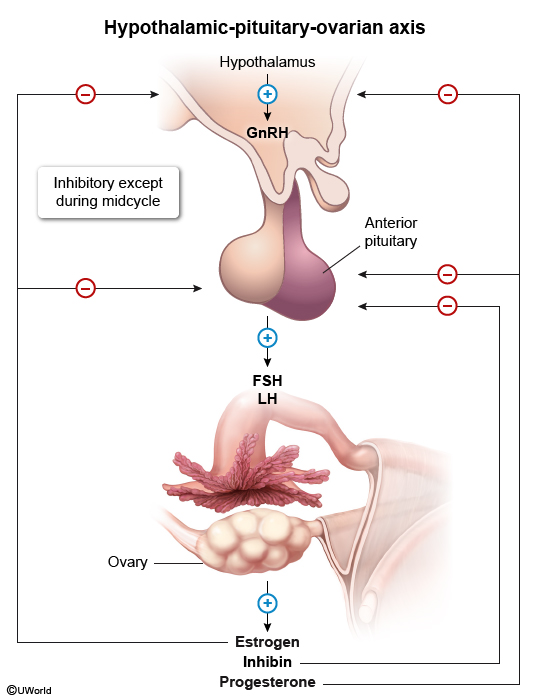
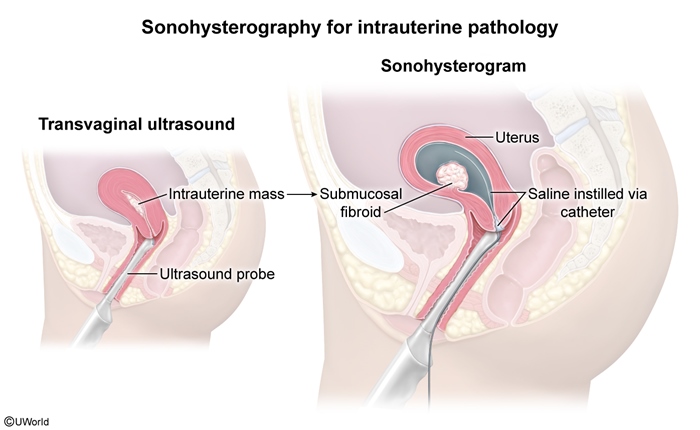
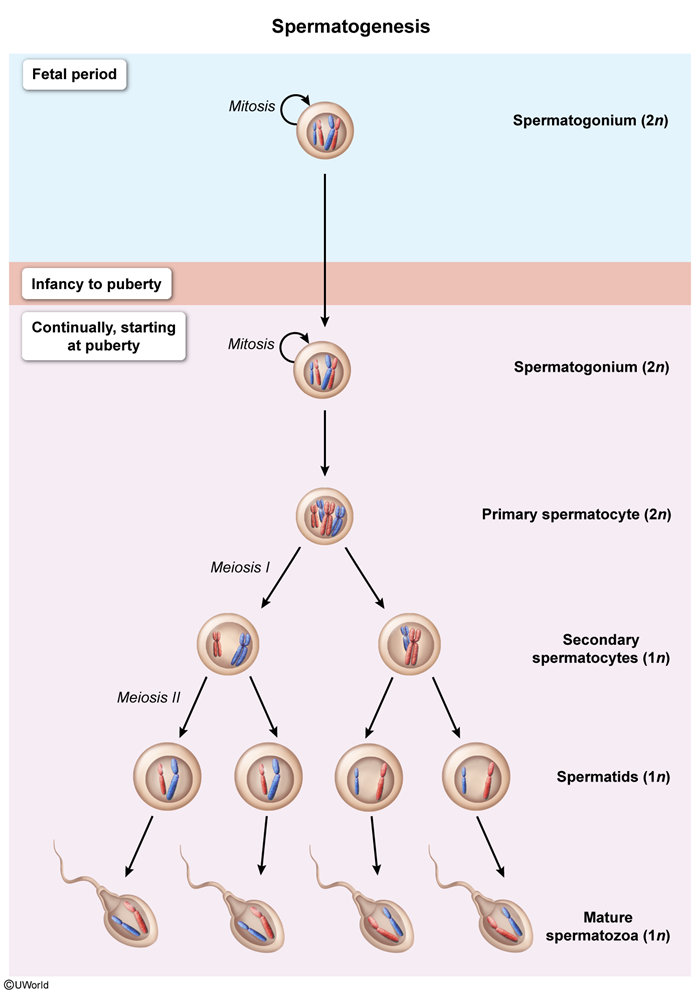
Images
